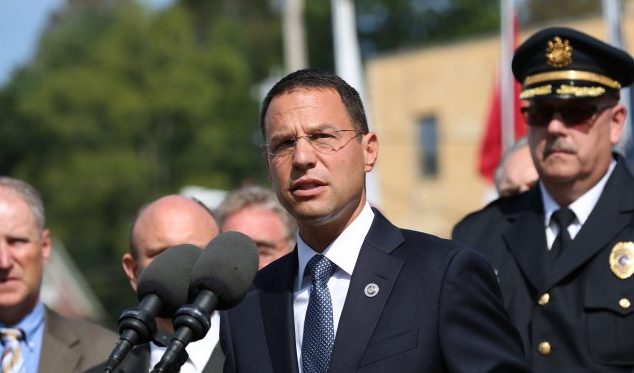The Marcellus Shale Coalition (MSC) which represents the vast majority of the state’s shale gas industry is pushing back hard on criticisms from Pennsylvania Attorney General Josh Shapiro and a statewide grand jury report that slammed oversight of the industry.
Last week, Shapiro’s office announced the findings of the grand jury’s two-year investigation saying it had “uncovered systematic failure by government agencies in overseeing the fracking industry and fulfilling their responsibility to protect Pennsylvanians from the inherent risks of industry operations.”
“He [AG Shapiro] came to the press with the mantra that it was a grand jury report, but clearly this is the AG’s report, in reality written by his office and provided to the grand jury,” MSC President Dave Spigelmyer told Delaware Valley Journal. “It’s full of inaccuracies, it’s full of innuendo and misrepresentations, and it over looks Pennsylvania’s existing statutory and regulatory framework for development.”
The new battle could have consequences for Chester and Delaware counties which host a portion of the Mariner East Pipeline carrying natural gas from across the state to the Marcus Hook terminal.
On Tuesday, Spigelmyer released a letter the coalition sent to the General Assembly refuting seven of the grand jury’s findings. Spigelmyer said Shapiro was “maligning Pennsylvania’s response to the rise of shale gas development” over the last decade.
To show how broad the regulation framework has become, the MSC letter listed one kind of government regulation or law added in each year from 2008 to 2016, ranging from increased fees for new oversight staff, to new wastewater discharge standards, and revised air quality permits.
Pennsylvania’s Department of Environmental Protection (DEP) was as outraged as Spigelmyer.
On the day of Shapiro’s announcement of the grand jury findings, DEP released its response to the report, saying it “fails as an exposé of a government agency ignoring its statutory duties and obligations.”
“Had the jurors been provided with accurate information about the existing laws, the scientific and policy underpinnigs of the regulations,” the DEP memo said, “the report would likely never have been written the way it was.”
A spokesperson for the AG’s office emailed a comment to Delaware Valley Journal after publication.
“The Grand Jury report, a product of 287 hours of direct testimony heard by Pennsylvania citizens, speaks for itself,” the spokesperson said. “The fracker’s powerful lobby can’t refute the health consequences that go along with living next to a drill site, from nosebleeds and sores to dangerous water, so it’ (sic) is no surprise they chose to attack these citizens and their report in order to protect their bottom line.”
Spigelmyer also pointed to a steady increase in drilling fees, which he says has allowed the DEP to increase its compliance and inspection staff from 60 to about 190 over the last 12 years.
“Last year with 677 wells drilled, there were 19,000 inspections in Pennsylvania,” Spigelmyer said. “There’s no industry that’s under the kind of perpetual scrutiny that this industry is under.”
Another key recommendation of the grand jury report was “requiring all fracking companies to publicly disclose all chemicals used in drilling and hydraulic fracturing before they are used on-site.”
“Act 13 in 2012 mandated that,” Spigelmeyer said.
An industry website, fracfocus.org, allows users to look up fracking chemicals on a county-by-county basis. And the website is overseen by the nonprofit Groundwater Protection Council.
Environmentalists have argued that the regulations in Act 13 are still not as robust as they should be.
Another recommendation was that “no-drill zones,” which were also instituted by Act 13, be increased “from the required 500 feet to 2,500 feet.”
Energy supporters say such a stringent setback would end up as a de facto ban on all gas drilling.
A referendum on the same drilling setback distance in Colorado — another state which has benefitted from the fracking revolution — failed at the ballot box in 2018 by a 58-42 margin.
Grand jury reports such as these have been so controversial in the past that in 2019 a task force recommended putting an end to the practice. The task force said “grand jury reports are created via a markedly one-sided process. Thus, the value of reports is questionable, as they lack the indicia of trustworthiness commonly ascribed to other court proceedings that are adversarial in nature.”


